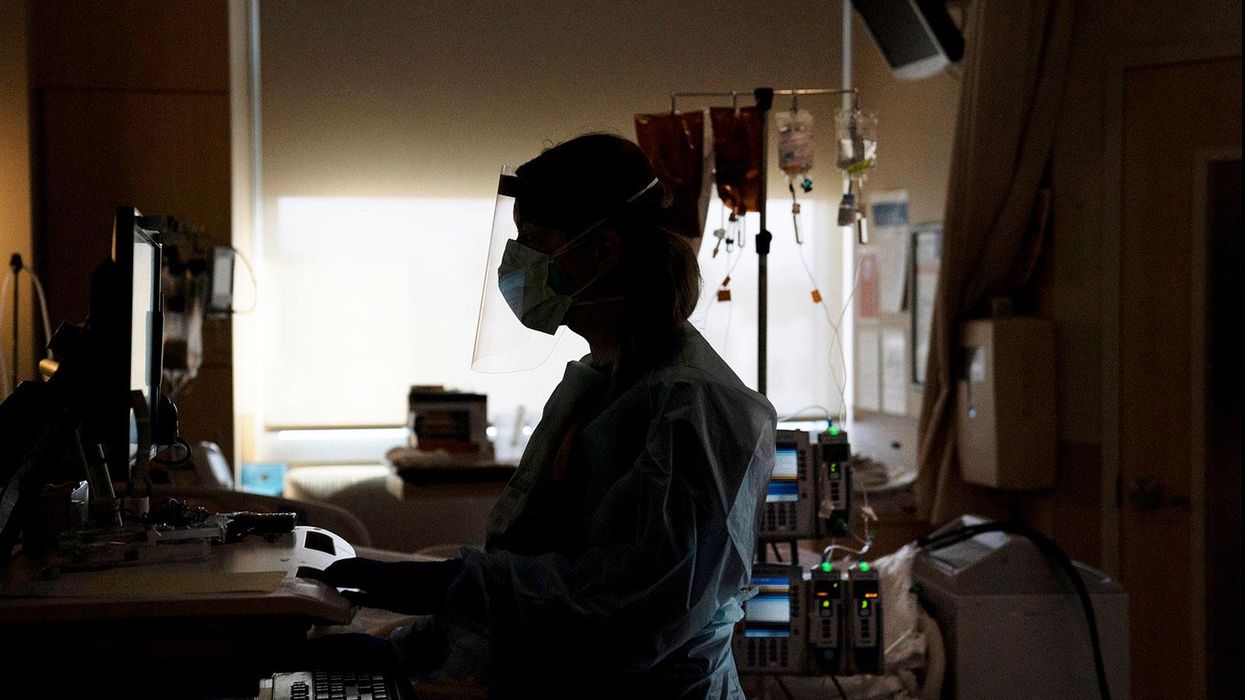(CNN) — Most adults in the US consider the quality of the country's health care to be unfavorable, according to a new survey. This is the first time in a 20-year trend from Gallup polls that the share of adults who rated the quality of the nation's health care to be "excellent" or "good" dipped below 50 percent. The share of adults who rated it as "poor" jumped above 20 percent, also for the first time.
Nearly half of adults said that the system has "major problems." Another one in five adults said that US health care is in a "state of crisis," the largest share in about a decade.
Ratings of health care cost and coverage were low — less than a quarter of adults say they are satisfied with the cost of health care in the country and less than a third of adults view health care coverage favorably — but those views have held relatively steady over the years.
For the past two decades, there has been a "clear distinction between the high regard people had for the quality of care in the country versus the problems they saw in healthcare administration, including coverage and cost," according to the Gallup report, which published Thursday and is based on interviews collected in November.
But the declining views on health care quality mark a noticeable shift in this balance.
Partisan views explain some of this shift. Republicans' view of health care quality dropped in 2014 after the implementation of the Affordable Care Act and rebounded during Donald Trump's presidency. But they dropped sharply again in recent years, down from 75 percent favorable in 2019 to 56 percent in the latest poll. Democrats typically view health care quality less favorably than Republicans, but their ratings have stayed more consistent over the years.
Also, satisfaction with health care has remained high among older adults ages 55 and up but declined among young and middle-age adults. The authors of Gallup report suggest that some of this drop may reflect views on abortion access and other changes that happened during the Covid-19 pandemic.
Overall, US adults are significantly more likely to view their personal health care — including the quality, coverage, and cost — more favorably than they do for the country as a whole. More than 70 percent of adults view the quality of their own health care favorably, but as with overall impressions of the system, satisfaction with personal health care dropped sharply in recent years.
Just 56 percent of adults in the US are satisfied with the total cost they have to pay for health care, the lowest Gallup has measured since 2016.
However, another new report found a more positive trend related to health care costs.
The share of people living in families who were struggling to pay for medical bills has been cut nearly in half over the past decade, down from nearly 20 percent in 2011 to about 11 percent in 2021, according to data published Wednesday by the National Center for Health Statistics.
There was a notable drop of more than three percentage points from 2019 to 2021, meaning 10.5 million fewer people were in families having problems paying medical bills in 2021 than in 2019.
The effects of the Covid-19 pandemic on this change "cannot be discounted," according to the authors of the report.
People were less likely to seek care in the early days of the pandemic, which could have limited the number of bills that needed to be paid. But policy provisions — such as those included in the CARES Act and American Rescue Plan — provided financial assistance that could have helped mitigate the impact of medical debt.
Still, medical debt continues to be a major source of overall debt and critical disparities remain.
Black, Hispanic, and American Indian people living in families are significantly more likely to struggle to pay medical bills. People covered by private insurance are less likely to have problems paying medical bills, but outcomes were better for people living in Medicaid expansion states than those that did not expand the federal program.
Reducing the burden of health care costs could help improve population health overall, as people facing medical debt are more likely to forego care and prescription drugs.
"Despite the decreasing trend in the percentage of people with problems paying medical bills, the burden associated with unpaid medical bills remains a public health concern," wrote the authors of the NCHS report.
The-CNN-Wire
™ & © 2023 Cable News Network, Inc., a Warner Bros. Discovery Company. All rights reserved.


















































